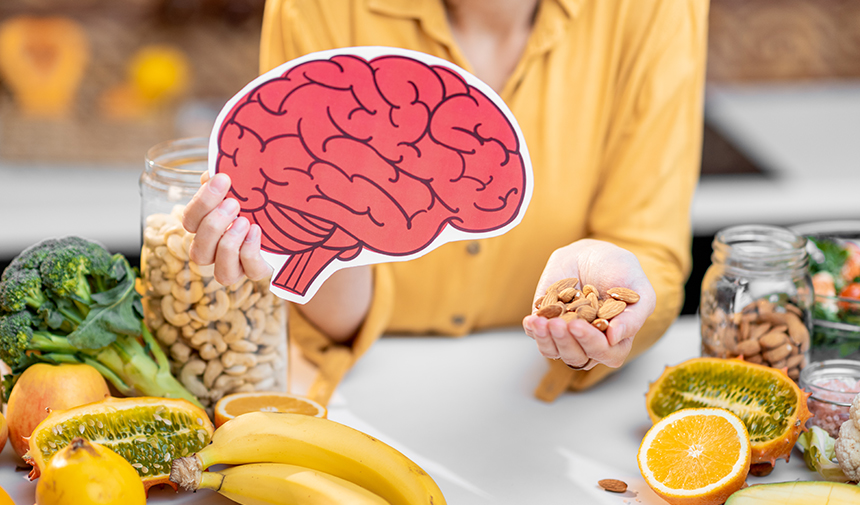Nutrition has a huge impact on our mental health as well as our physical health. The food we eat can affect the functioning of our brain and therefore our emotional state. It is important to eat the right foods to manage mental problems such as depression, anxiety and stress. Here are some foods that are good for mental health and their benefits:
Salmon
Salmon is rich in omega-3 fatty acids. Omega-3 fatty acids support brain health and alleviate symptoms of depression and anxiety. These fatty acids reduce inflammation in the brain and regulate serotonin levels, improving overall mood.
Benefits: Omega-3 fatty acids improve brain function and reduce the risk of depression and anxiety.
Dark Chocolate
Dark chocolate contains chemicals such as phenylethylamine and serotonin, which improve mood. It is also rich in antioxidants and helps to lower levels of the stress hormone cortisol. However, due to the high calorie content of dark chocolate, it is important not to overdo it.
Benefits: Increases serotonin levels and reduces symptoms of stress and anxiety.
Blueberries
Blueberries are rich in antioxidants and vitamin C. These nutrients protect and improve brain function by reducing oxidative stress in the brain. In addition, the flavonoids in blueberries support memory and cognitive functions.
Benefits: Reduces oxidative stress, protects and improves brain function.
Hazelnuts and Walnuts
Hazelnuts and walnuts are packed with brain-healthy nutrients such as vitamin E and omega-3 fatty acids. Vitamin E prevents cognitive decline by reducing oxidative damage to the brain. Omega-3 fatty acids support healthy brain cells.
Benefits: Protects brain health, prevents cognitive decline.
Spinach
Spinach is packed with nutrients such as folate, magnesium and vitamin C. Folate reduces the risk of depression by increasing serotonin production. Magnesium improves brain function and reduces stress levels.
Benefits: Increases serotonin production and reduces depression and stress levels.
Yogurt
Yogurt is rich in probiotics. Probiotics support the brain-gout connection by improving gut health. A healthy gut flora positively affects brain health and improves mood.
Benefits: Improves gut health, supports the brain-gut connection.
Avocado
Avocados are rich in healthy fats, B vitamins and potassium. Healthy fats help keep brain cells healthy, while B vitamins support energy production and make it easier to cope with stress.
Benefits: Protects brain cells, boosts energy production and makes it easier to cope with stress.
Oats
Oats are rich in fiber and complex carbohydrates. These nutrients stabilize blood sugar levels and help to keep energy levels stable. In addition, oats improve mood by supporting the production of serotonin.
Benefits: Stabilizes blood sugar levels, keeps energy levels stable, supports serotonin production.
Tomato
Tomatoes contain a powerful antioxidant called lycopene. Lycopene protects brain cells from oxidative stress and improves overall brain health. In addition, other nutrients in tomatoes help regulate mood.
Benefits: Protects brain cells, regulates mood.
Green Tea
Green tea contains an amino acid called L-theanine. L-theanine improves brain function and reduces stress levels. In addition, the antioxidants found in green tea support brain health.
Benefits: Improves brain function, reduces stress levels.
Conclusion
It is very important to eat the right foods to support mental health. Foods rich in omega-3 fatty acids, antioxidants, probiotics and various vitamins protect brain health and improve overall mood. By developing healthy eating habits, you can support both your physical and mental health.



